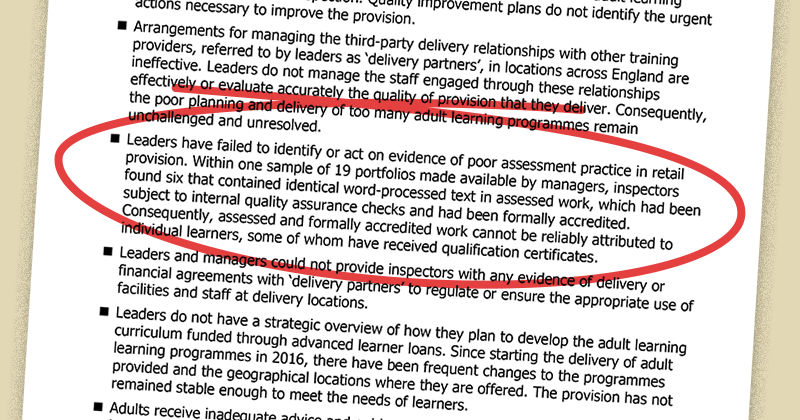After 10 years of “politely” highlighting the impact of funding cuts, the Association of Colleges will now make “a lot more noise”, after a plea to ministers for cash to fund a lecturer pay rise was rejected.
It will kick off its new louder strategy by holding a “week of action” in October, where students, staff, parents, employers, and stakeholders will be asked to “advocate for colleges”.
The action follows the Department for Education’s decision to fund a 3.5 per cent pay rise for school teachers while ignoring college lecturers – an announcement which left David Hughes (pictured), the boss of the AoC, “angry” and “frustrated”.
He wrote to education secretary Damian Hinds setting out the case for a similar pay increase in colleges in a letter, seen by FE Week, sent on July 19.
It explained the “unfair” discrepancy between average college and school teacher pay – £30,000 compared with £37,000 respectively – and how continuous government cuts have left it impossible for colleges to offer decent staff pay increases.
“Colleges have managed their budgets to cope with real-term funding cuts by making efficiency gains where they can but the scope for them to continue to do this has all-but run out,” the letter said.
“With nowhere else to turn, colleges have offered below-inflation pay rises for several years with the result that staff pay has been held back.
“We would like to ask DfE to provide funds to allow colleges to at least match the school teacher pay awards for 2018-19 and 2019-20.”
After sending the letter Mr Hughes said he had many discussions with DfE, the tone of which were “initially quite positive, based I think on the expectation that the Treasury would fully or partially fund the teachers’ pay award, giving them some potential to use savings for college pay”.
But when the announcement was made that DfE had to find savings in its own budget for school teacher salary rises, the tone became “less positive”.
He then received a letter from skills minister Anne Milton on August 21 which essentially said no to the request.
“Schools and colleges have different workforces and requirements, and the way pay is determined in those sectors is quite separate,” she said.
“We want to make sure that there is an effective funding system for FE which can support sustainable, high quality education. We are considering this as part of the upcoming spending review, scheduled to take place in 2019.”
Mr Hughes was “deeply disappointed” by the minister’s response.
He told FE Week that during the last 10 years of funding cuts to colleges his association has been “politely setting out how difficult that is and the impact on students and staff”.
But now “we need to try something different”.
“There is no more mileage in simply making the case, proving that funding is inadequate, trying to persuade DfE – we have achieved all of that, which is progress of sorts,” he said in a letter to the AoC’s members on Friday.
“What we need now is to make our voices heard on the political level, to fight for college and students’ needs in what looks set to be a tough set of spending decisions this autumn in the budget and more importantly in the Spending Review in early 2019.”
He told FE Week that his association was planning a “week of action” to start October 15.
“The issue is we are in a very tight funding financial constraint position with government so we have to make a lot more noise and get a lot more students, staff, parents, employers, stakeholders, partners to advocate for colleges,” he said.
“The week of action is going to ramp up the noise about how important colleges are.
“We’ll be doing that positively and politely, but we want to make as much noise as possible to say colleges are vital in every community and they really matter, and investment in colleges is not throwing money away.”
Mr Hughes said his association will decide exactly what action will be taken during that week in the coming weeks, and more information will be released next month.
The week of action will be held the same week that a national UCU ballot for industrial action over staff pay closes.



